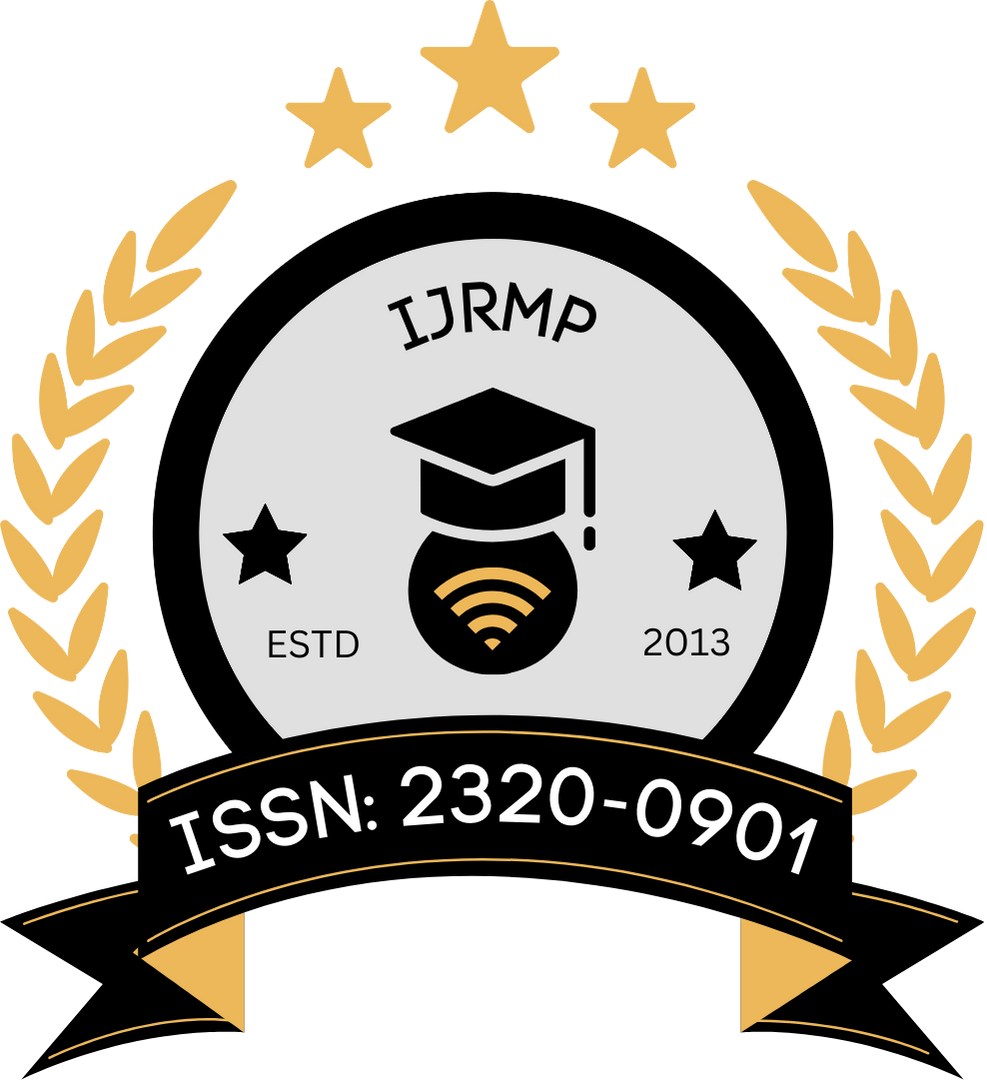![]()
DOI: https://doi.org/10.63345/ijrmp.v10.i10.1
Vignesh Iyer
Anna Nagar, Chennai, Tamil Nadu
Abstract
Recent studies have illuminated the critical role that the gut microbiome plays in influencing drug absorption and therapeutic efficacy. The complex interplay between host enzymes, microbial metabolites, and drug biotransformation can lead to significant inter-individual differences in drug response. This manuscript explores the mechanisms by which the gut microbiota modulates drug pharmacokinetics and pharmacodynamics, reviews the literature published up to 2020, and outlines the methodology for investigating these interactions using both clinical survey data and laboratory-based analyses. A mixed-methods approach is described, including in vivo assessments, in vitro models, and statistical analyses to elucidate the correlations between microbial diversity and drug absorption profiles. The results suggest that microbiome modulation—through diet, probiotics, or antibiotics—can significantly affect drug bioavailability and efficacy, with implications for personalized medicine. The manuscript concludes with recommendations for integrating microbiome profiling into clinical practice and outlines future research directions to enhance our understanding of host-microbiome-drug interactions.
Keywords
Gut microbiome, drug absorption, pharmacokinetics, pharmacodynamics, microbiome modulation, personalized medicine
References
- https://www.google.com/url?sa=i&url=https%3A%2F%2Fwww.synlab-sd.com%2Fen%2Fblog%2Fhealth-and-wellness-en%2Fgut-microbiome-understand-its-importance-for-maintaining-health%2F&psig=AOvVaw2GJmM3k4Sgooa8zvMKH5vU&ust=1741184870474000&source=images&cd=vfe&opi=89978449&ved=0CBQQjRxqFwoTCKjjxMjR8IsDFQAAAAAdAAAAABAp
- https://www.google.com/url?sa=i&url=https%3A%2F%2Fen.wikipedia.org%2Fwiki%2FPharmacomicrobiomics&psig=AOvVaw0Y9oU2tx40nEUrzvYo9pWs&ust=1741185544753000&source=images&cd=vfe&opi=89978449&ved=0CBQQjRxqFwoTCJiNq-fT8IsDFQAAAAAdAAAAABAE
- Nicholson, J. K., Holmes, E., Kinross, J., Burcelin, R., Gibson, G., Jia, W., & Pettersson, S. (2012). Host–gut microbiota metabolic interactions. Science, 336(6086), 1262–1267.
- Sommer, F., & Bäckhed, F. (2013). The gut microbiota—masters of host development and physiology. Nature Reviews Microbiology, 11(4), 227–238.
- Koppel, N., Rekdal, V. M., & Balskus, E. P. (2017). Chemical transformations of xenobiotics by the human gut microbiota. Science, 356(6344), 1294–1298.
- Zimmermann, M., Zimmermann-Kogadeeva, M., Wegmann, R., & Goodman, A. L. (2019). Separating host and microbiome contributions to drug pharmacokinetics and toxicity. Cell, 177(4), 1669–1682.
- Dethlefsen, L., & Relman, D. A. (2011). Incomplete recovery and individualized responses of the human distal gut microbiota to repeated antibiotic perturbation. Proceedings of the National Academy of Sciences, 108(Supplement 1), 4554–4561.
- Wallace, B. D., Wang, H., Lane, K. T., Scott, J. E., Orans, J., Koo, J. S., Venkatesh, M. K., Jobin, C., & Yeh, T.-C. (2010). Alleviating cancer drug toxicity by inhibiting a bacterial enzyme. Science, 330(6005), 831–835.
- Haiser, H. J., & Turnbaugh, P. J. (2012). Is it time for a metagenomic basis of therapeutics? Science, 336(6086), 1255–1256.
- Li, H., & He, J. (2016). Interplay between the gut microbiota and drug metabolism. Clinical Pharmacology & Therapeutics, 99(2), 150–158.
- Jovel, J., Patterson, J., Wang, W., Hotte, N., O’Keefe, S., Mitchel, T., Perry, T., Kao, D., Mason, A. L., Madsen, K. L., Wong, G., & Madsen, M. (2016). Characterization of the gut microbiome using 16S or shotgun metagenomics. Frontiers in Microbiology, 7, 459.
- Kim, S., Covington, A. G., & Pamer, E. G. (2017). The intestinal microbiota: Antibiotics, colonization resistance, and enteric pathogens. Immunological Reviews, 279(1), 90–105.
- Urdaneta, V., & Casadesús, J. (2016). Interactions between bacteria and bile salts in the gastrointestinal and hepatobiliary tracts. Frontiers in Medicine, 3, 87.
- Kearney, S. M., Kay, J., & Blaser, M. J. (2019). Strategies to reduce the risk of drug-induced adverse events by modulating the gut microbiota. Journal of Clinical Investigation, 129(6), 2111–2119.
- Gupta, V. K., Paul, S., & Dutta, C. (2017). Geography, ethnicity or subsistence-specific variations in human microbiome composition and diversity. Frontiers in Genetics, 8, 83.
- Martinez, I., Kim, J., Duffy, P. R., Schlegel, V., Checkley, S., Taylor, W. R., Loke, Y. J., Zuo, T., Lockett, T., Horne, C., & Evershed, R. P. (2013). Gut microbiome composition is linked to whole grain-induced immunological improvements. The ISME Journal, 7, 200–211.
- Sharon, G., Sampson, T. R., Geschwind, D. H., & Mazmanian, S. K. (2016). The central nervous system and the gut microbiome. Cell, 167(4), 915–932.
- Clarke, G., Stilling, R. M., Kennedy, P. J., Stanton, C., Cryan, J. F., & Dinan, T. G. (2014). Gut reactions: Breaking down xenobiotics in the intestine. Annual Review of Pharmacology and Toxicology, 54, 285–310.
- Swanson, K. S., Grieshop, C. M., Flick, T. P., Parameswaran, N., & Compartment, P. J. (2015). Interactions of the gut microbiota with the metabolism of drugs. American Journal of Physiology-Gastrointestinal and Liver Physiology, 309(3), G209–G219.
- Li, X., Yao, H., Ren, F., & Liu, Z. (2019). The gut microbiome: A key player in the modulation of drug response. Pharmacological Research, 152, 104616.
- Wilson, I. D., & Nicholson, J. K. (2017). Gut microbiome interactions with drug metabolism. Clinical Pharmacology & Therapeutics, 101(2), 201–203.
- Zhang, L., Li, S., Wang, Y., Huang, X., & Tan, H. (2020). Microbiome–drug interactions: Implications for pharmacotherapy. Trends in Pharmacological Sciences, 41(4), 280–293.
